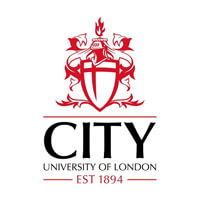fees waived
Mathematics with Finance & Economics, BSc (Hons)
City, University of London, United Kingdom
Subject ranking
UK / ARWU 2024 5th
UK / Times 2025 5th
UK / CUG 2024 13th
Costs
food & rentS$25.1K / year
Entry requirements
Scholarships
Limited quantity
Information
Code
Intakes
Website (External)
Programmes
Information
Duration
2028
This BSc in Mathematics with Finance and Economics delivers a solid foundation in mathematical principles, financial expertise, and economic theory, making graduates highly desirable to employers across industries, especially in finance. The program emphasizes applied mathematics and real-world problem-solving, covering topics like statistics, probability, financial markets, and macroeconomics. Students develop key skills through modules on computing, corporate finance, and optional paid placements with organizations such as Barclays and IBM. Taught by experts from Mathematics, Economics, and Bayes Business School, the degree includes accreditation from the Institute and Faculty of Actuaries, potentially exempting high performers from professional exams.The three-year curriculum starts with core subjects like calculus and microeconomics, progressing to advanced areas such as differential equations and international finance. Assessment combines exams, coursework, group projects, and presentations, with feedback typically provided within three to four weeks.
This three-year BSc Mathematics with Finance and Economics degree increases in choice and flexibility as you progress through the programme, so you can shape what to study to suit your interests. Year 1 -Functions, Vectors and Calculus (30 credits) -Algebra (15 credits) -Introduction to Microeconomics (15 credits) -Introduction to Macroeconomics (15 credits) -Linear Algebra (15 credits) -Introduction to Probability and Statistics (15 credits) -Skills, Careers and Employability Analysis for Mathematics students (5 credits) -Introduction to Modelling (15 credits) Year 2 -Programming and Data Science for the Professions (15 credits) -Real and Complex Analysis (30 credits) -Vector Calculus (15 credits) -Fundamentals of Finance (15 credits) -Professional Development and Employability (5 credits) -Intermediate Microeconomics 1 (15 credits) -Intermediate Microeconomics 2 (15 credits) -Intermediate Macroeconomics 1 (15 credits) -Intermediate Macroeconomics 2 (15 credits) -Sequences and Series (15 credits) -Applied Mathematics (15 credits) -Numerical Mathematics (15 credits) Year 3 -Differential Equations (30 credits) -Group Project (15 credits) -Operational Research (15 credits) -Corporate Finance (15 credits) -History of Economic Thought (15 credits) -International Finance (15 credits) -Financial Economics (15 credits) -Monetary Economics (15 credits) -The Economics of Addiction (15 credits) -Economics of European Integration (15 credits) -Money and Banking (15 credits) -Industrial Organisation (15 credits) -Financial Reporting (15 credits) -Discrete Mathematics (15 credits) -Advanced Complex Analysis (15 credits) -Game Theory (15 credits) -Dynamical Systems (15 credits) -Introduction to the Mathematics of Fluids (15 credits) -Introduction to Mathematical Physics (15 credits) -Mathematical Processes for Finance (15 credits) -Groups and Symmetry (15 credits) -Mathematical Biology (15 credits)

